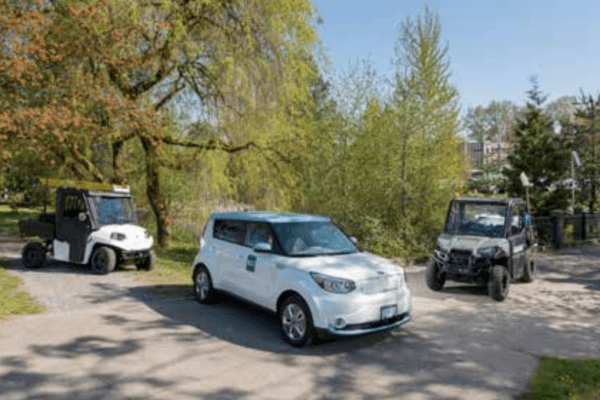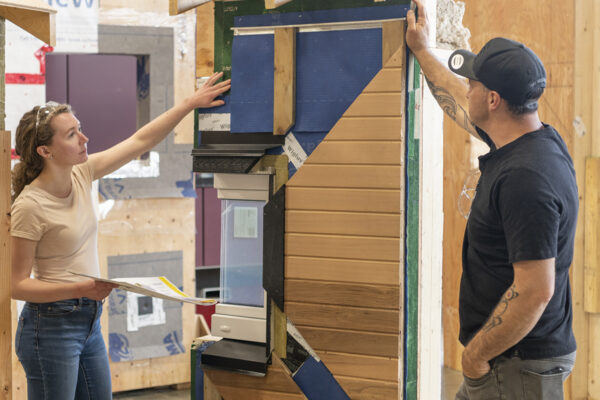
Eliminate or absorb all carbon-based emissions on campus from fossil fuel combustion and decomposing vegetation and waste associated with campus activities.
Why we are working towards greenhouse gas neutrality
- Reduce greenhouse gas (GHG) emissions and air contaminants, as well as associated costs.
- Increase energy efficiency and add vegetation to sequester carbon.
Greenhouse gas management
The BCIT Strategic Energy Management Plan (SEMP) 2024 update is a roadmap to facilitate the pursuit of becoming GHG neutral. BCIT has a near-term goal of decreasing GHG emissions by 50% by 2030 with further aspirational goals of net-zero carbon and net energy producer by 2050. The energy used to run campus buildings is a major source of these emissions. Other GHG sources include supplies, such as paper, and fuel used in fleet vehicles and equipment. At Burnaby campus, our comprehensive energy and greenhouse gas management program includes solar and distributed power projects.
Buildings
The mix of old and new buildings on our campuses presents unique opportunities for reducing the Institute’s Ecological Footprint. Our new buildings are built with many energy-efficient features. Older structures provide an opportunity to develop leadership in retrofit technology applications, to meet or exceed energy and materials performance levels of new green buildings.
Transportation
BCIT’s Burnaby Campus Plan was approved by the Board of Governors in 2018. It provides a roadmap to future development and provides a transportation strategy to increase transit service, reduce reliance on single-occupant vehicles, reduce parking demand to free up land for new uses, and support cycling and walking. This includes the further development of bicycle paths and storage, and improved pedestrian walkways within and linking off the campus, as well as incentives for carpooling.
Alternatives
At BCIT, staff and students can save money, improve their health and help reduce our ecological footprint by using alternative forms of transportation.
The Commute Smart challenge encourages employees to try preferred transportation solutions for their commute. During the course of the challenge, commuters register and indicate that they tried an environmentally preferred form of commuting to work.
Food
Forty percent of the food products on-campus are locally produced. This helps to reduce food transport emissions.
Did you know that BCIT has edible gardens and pollinator habitat for bees and butterflies. To learn more visit the BeeCIT pollinator program.







